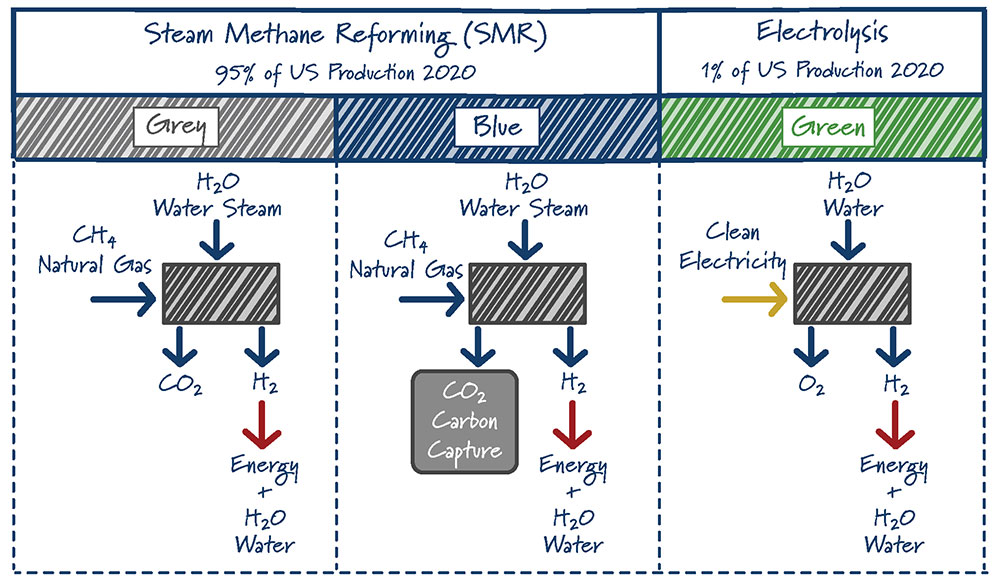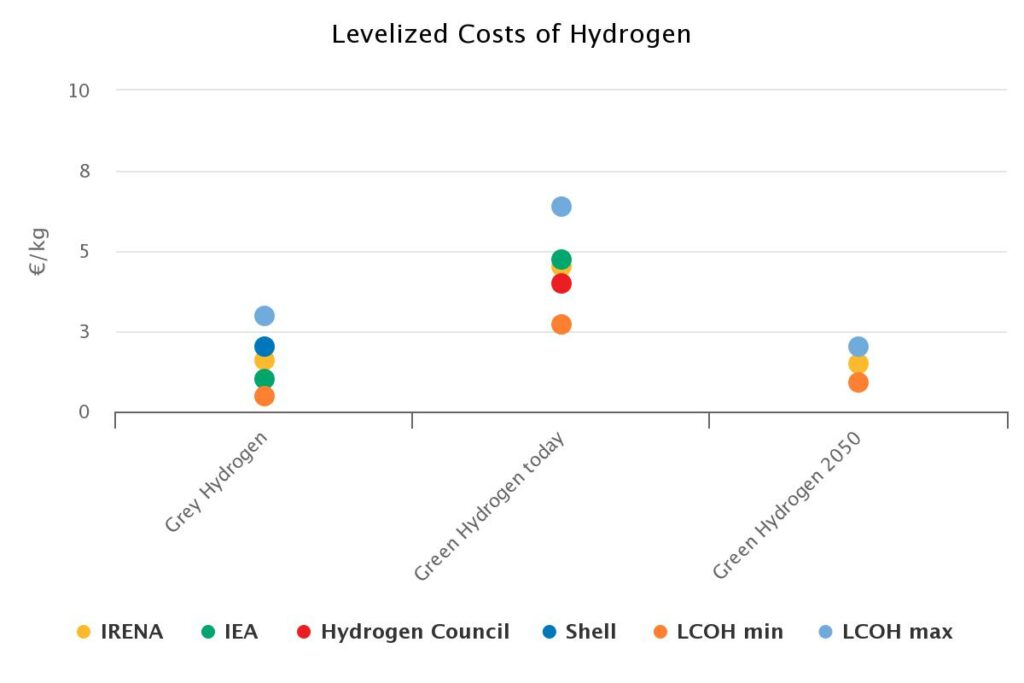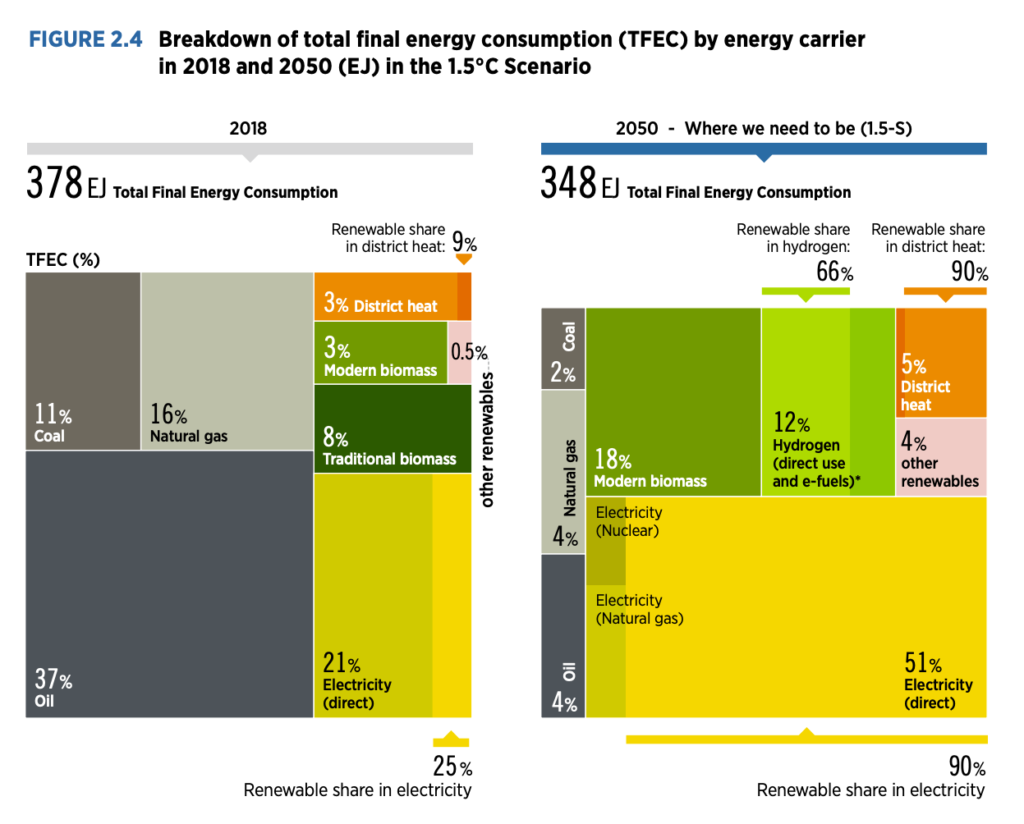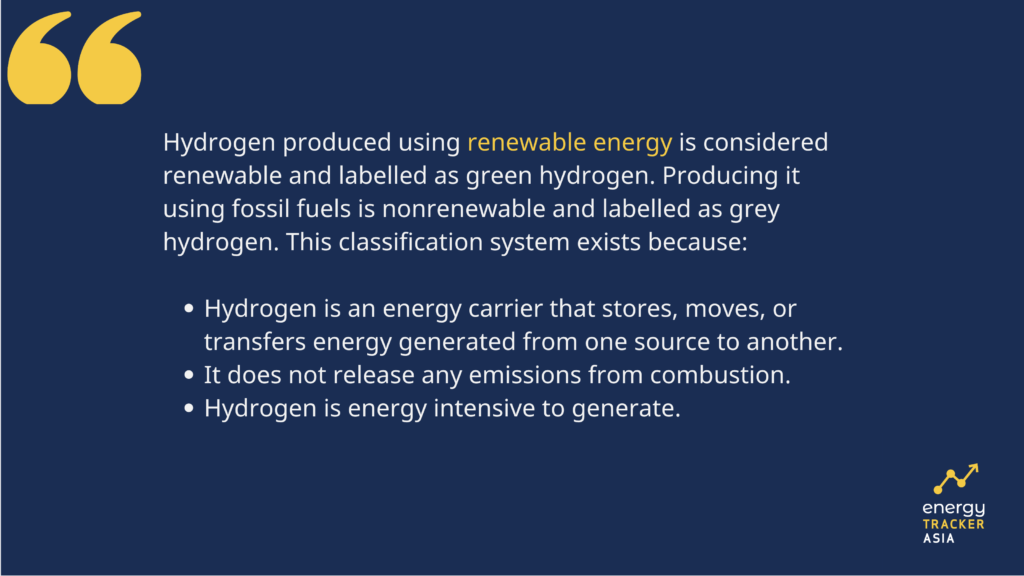Is Hydrogen Renewable?
Photo by Grzegorz Czapski
06 November 2022 – by Eric Koons Comments (0)
Is Hydrogen a Renewable Energy Source?
Is hydrogen renewable or nonrenewable? The answer is complex because hydrogen is not an energy source but rather an energy carrier. In fact, the energy source used to produce hydrogen dictates its emissions.
As a future energy source and the most abundant element in the universe, hydrogen is surprisingly difficult to find in its atomic, or gaseous form. Most of the hydrogen found on Earth is in water, which consists of one oxygen atom and two hydrogen atoms.
To harness hydrogen as an energy carrier, it has to be split from the other sources, like water or natural gas. Currently, all of the techniques for this process are energy-intensive and can emit large quantities of carbon, depending on the energy source used for power.
Is Hydrogen Renewable or Nonrenewable?
In simple terms, hydrogen produced using renewable energy sources as an input is considered renewable and is known as green hydrogen. Hydrogen produced using fossil fuels as an energy input is nonrenewable and is called grey hydrogen.
This classification system exists for three main reasons:
- Hydrogen is an energy carrier that stores, moves or transfers energy generated from one source to another.
- It does not release any emissions from combustion.
- Hydrogen generation is energy intensive.
So, in practicality, hydrogen generates greenhouse gas emissions solely based on the energy input.

How Do Hydrogen Fuel Cells Produce Renewable Electricity?
Hydrogen fuel cells generate electricity by combining hydrogen and oxygen atoms, which release heat and water as by-products. This reaction does not emit greenhouse gasses, so it may seem inherently low-carbon and renewable.
How is Hydrogen Fuel Made?
We need to make the hydrogen that is used to power the fuel cell. This requires an energy input. The entire process is renewable and carbon neutral if that input is renewable energy. But, if the input is a fossil fuel, there are greenhouse gas emissions and carbon emissions, making the process nonrenewable.
Hydrogen Can Be Renewable: Why Don’t We Produce More Green Hydrogen?
In 2020, 99.6% of global hydrogen production came from fossil fuel power instead of renewable power, with around 71% harnessing natural gas and the remaining amount utilising coal. Green hydrogen production only accounted for approximately 0.1% of global production.
Price
This massive disparity in hydrogen production is due to one main reason: price. The price of hydrogen is based on the cost of the input energy and technology used in production. Grey hydrogen production typically utilises steam methane reformation (SMR) or coal gasification, both of which are well-established technologies. Alternatively, green hydrogen uses water electrolysis, which is expensive and requires more innovation to reach scale.

Production Cost of Grey Hydrogen vs Green Hydrogen
Due to these factors, the production cost of grey hydrogen ranges from USD 1 to USD 2 per kg, compared to USD 2.5 to USD 6 per kg for green hydrogen. With a cost of up to six times higher for green hydrogen, it is challenging to make the direct economic case of switching away from grey hydrogen without factoring in the avoided future climate impacts by reducing fossil fuel use.
Increasing Green Hydrogen Adoption
Reducing these costs will tip the scale towards green renewable hydrogen generation from grey or blue hydrogen. However, it requires significant financial and regulatory backing. Estimates predict that the price of green hydrogen will need to drop by 50% to be viable. Furthermore, a recent report by the Energy Transitions Council found that for the green hydrogen economy to play a significant role in the world’s net-zero future, it requires a five to seven-fold increase by 2050, costing USD 15 trillion in investment.
Increasing Demand to Grow Hydrogen Economy
The International Energy Association (IEA) notes that increasing demand is one of the key ways to grow the green hydrogen economy. This relies on developing new applications for hydrogen use, creating incentives for hydrogen adoption and improving global cooperation in the hydrogen market.
Additionally, the IEA lists several policy recommendations to make this possible:
- Develop long-term strategies on the role hydrogen will play in future energy systems.
- Provide financial incentives to use green hydrogen instead of fossil fuel alternatives.
- Implement policy frameworks to activate investment in low-carbon hydrogen technologies from the private sector.
- Give support to public and private institutions for ongoing innovation within the low-carbon hydrogen industry.
Is Hydrogen A Sustainable Fuel for the Earth’s Future?
The quantity of research on the role green hydrogen needs to play in the world’s race to net-zero is continually growing. This is exemplified by the fact that a low-carbon energy system requires green electrification and low-carbon fuels.
It is clear that renewable energy, like wind, solar and hydropower, will be some of the leading technologies for electrification. However, low-carbon fuels are more challenging. But, they are necessary. The world needs ways to store, move and utilise low-carbon energy.
Green hydrogen has a significant potential to fill this gap, and the IEA estimates that the world needs 530 Mt of green hydrogen to reach net-zero by 2050.

Another one of its main roles in the future energy mix is to power hard to decarbonise industries. A report by McKinsey looked at the future of green hydrogen in the steel industry – one of the world’s highest carbon-emitting sectors. McKinsey found that green hydrogen has the potential to reduce the steel industry’s carbon dioxide emissions by 20% by 2030 if green hydrogen development stays on track.
Leading think tanks, international energy groups and consulting firms agree that renewable hydrogen will be necessary in the world’s future low-carbon energy system and affordable energy future. Additionally, it is clear that green hydrogen is currently not financially feasible, and this needs to change. We need governments and and global clean energy industries to step forward and facilitate the sector’s development.

by Eric Koons
Eric is a passionate environmental advocate that believes renewable energy is a key piece in meeting the world’s growing energy demands. He received an environmental science degree from the University of California and has worked to promote environmentally and socially sustainable practices since. Eric’s expertise extends across the environmental field, yet he maintains a strong focus on renewable energy. His work has been featured by leading environmental organizations, such as World Resources Institute and Hitachi ABB Power Grids.
Read more